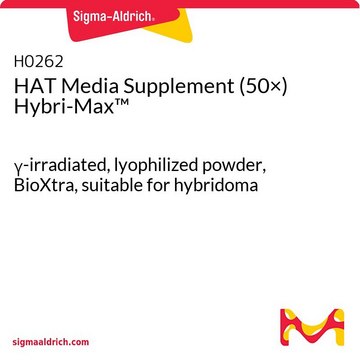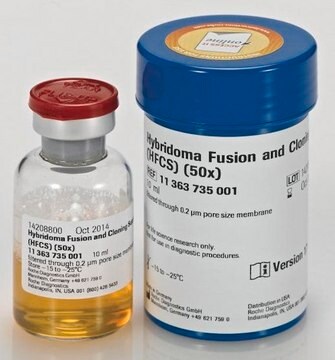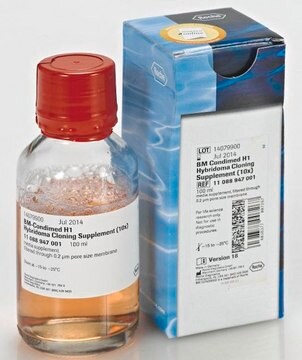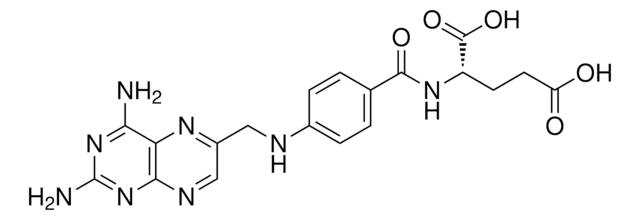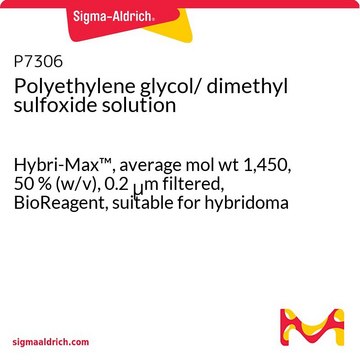H0137
HT Media Supplement (50×) Hybri-Max™
lyophilized powder, suitable for hybridoma, BioXtra
Synonym(s):
HT Supplement, Hypoxanthine-Thymidin (HT) media supplement
About This Item
Recommended Products
product name
HT Media Supplement (50×) Hybri-Max™, lyophilized powder, γ-irradiated, BioXtra, suitable for hybridoma
Quality Level
sterility
γ-irradiated
product line
BioXtra
form
lyophilized powder
technique(s)
cell culture | hybridoma: suitable
impurities
endotoxin, tested
storage temp.
−20°C
Application
Reconstitution
Legal Information
Storage Class Code
11 - Combustible Solids
WGK
WGK 3
Flash Point(F)
Not applicable
Flash Point(C)
Not applicable
Personal Protective Equipment
Certificates of Analysis (COA)
Search for Certificates of Analysis (COA) by entering the products Lot/Batch Number. Lot and Batch Numbers can be found on a product’s label following the words ‘Lot’ or ‘Batch’.
Already Own This Product?
Find documentation for the products that you have recently purchased in the Document Library.
Customers Also Viewed
Protocols
Protocol Guide: XTT Assay for Cell Viability and Proliferation
MTT assay protocol for measuring cell viability, proliferation and cytotoxicity. Instructions for MTT reagent preparation and examples of applications.
Our team of scientists has experience in all areas of research including Life Science, Material Science, Chemical Synthesis, Chromatography, Analytical and many others.
Contact Technical Service